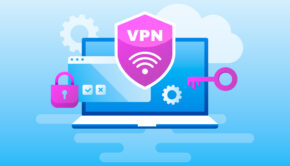Everything You Need to Know About Password Managers
So, you’re new to password managers? That means you’re taking steps toward making your information more secure, and that’s great news. If more of us took our personal data seriously, we probably wouldn’t all be obsessed with social media. But all social commentary aside, managing your passwords and protecting your personal data is extremely important, especially when you consider that about 14 million people had their identities stolen in 2019.
If you’re planning to use a password manager going forward, there are a few things you’ll need to know first. Consider this your user manual for password managers. We’ll discuss what they do, what they cost, what features you’ll get, and why you should probably be using one.
What Is A Password Manager?
So, what is a password manager? You’ve heard about them, but you’re not 100% sure what they do. That’s ok—we’re here to help.
A password manager is as simple as it sounds. It’s a program that helps you manage passwords. You can store, organize, and secure all of your passwords in a single program for free or for a premium fee, depending on what you need from your password manager. Whether you need a password manager for Safari, Chrome, or any other web browser, or you just need to stop writing down passwords on sticky notes, a password manager is the tool for you.
Common Features
While, of course, every password manager will offer its own unique features, most of these programs will have similar standard features. Let’s take a look at some of these features, so you can get a better idea of what you’ll be paying for.
Password Storage
The password manager’s most basic feature is secure password storage. Storing passwords in a Google Doc, on a sticky note, or really anywhere that isn’t encrypted is a good way to your passwords stolen or compromised. Passwords need to be saved somewhere that can’t be accessed from your machine, in case it’s compromised, and even online password managers need certain security protocols to make them viable.
If you’re using your browser’s password manager to store passwords, you’re making a mistake. The browser password managers are subject to the security of the browser itself, so if the browser is hacked, there go all of your passwords!
Credential Management
Aside from passwords, your password manager will store website credentials like usernames, pins, and more. This is a great way to keep things organized, and you can save passwords and usernames together for easy access. Some password managers even provide secure cloud storage for important files, so they’re not at the mercy of your machine’s security or floating around in your Google Drive.
Password Generator
One of the best features that password managers have to offer is the password generator. This important feature helps you to stop creating passwords that even your average 5th-grader could guess with a bit of your personal information. The sad fact is that most people use some kind of self-identifying information in their passwords, and a large percentage of people use the same password for multiple (or all) accounts.
The password generator will let you create a random password based on your parameters, such as length, character combination, etc.
Autofill
It’s safe to say that none of us likes manually putting in passwords, but it’s a necessary step to keeping accounts secure. With your password manager, you’ll never have to manually enter passwords, as they can be auto-filled with the click of a button. Username, pin, password, and any other credentials are filled in, so you just click login and go!
Dark Web Monitoring
The dark web is a place where personal information, including passwords, is sold for top-dollar. If your email address or other information ends up on the dark web, you could be in serious trouble. Some password managers offer dark web monitoring as a standard feature.
Notifications
It’s hard enough to keep track of everything else in modern life, let alone your passwords. Password managers take away the worry by sending you notifications about old passwords, duplicates, and more. Consider it your personal password assistant and security expert.
The Cost
So, how much does a password manager cost? Truthfully, most password managers have both a free and a premium service. Premium services don’t usually cost more than a few dollars per month, which is a small investment compared to the potential cost of a data breach or identity theft. You can always make use of discounts like trezor promo code to set your password manager up.
Why You Need One
Why should you use a password manager? Because you’re not taking password security seriously enough. When someone breaches a password, it’s too late. Sure, you can change your passwords, usernames, and other data, but you’ve still been breached because you used your birthday as a password. All of us need some help sometimes, and with so many people using duplicate passwords or just creating poor passwords, it’s safe to say we could use some help. Using a password manager is an investment in your future and your overall security.
















